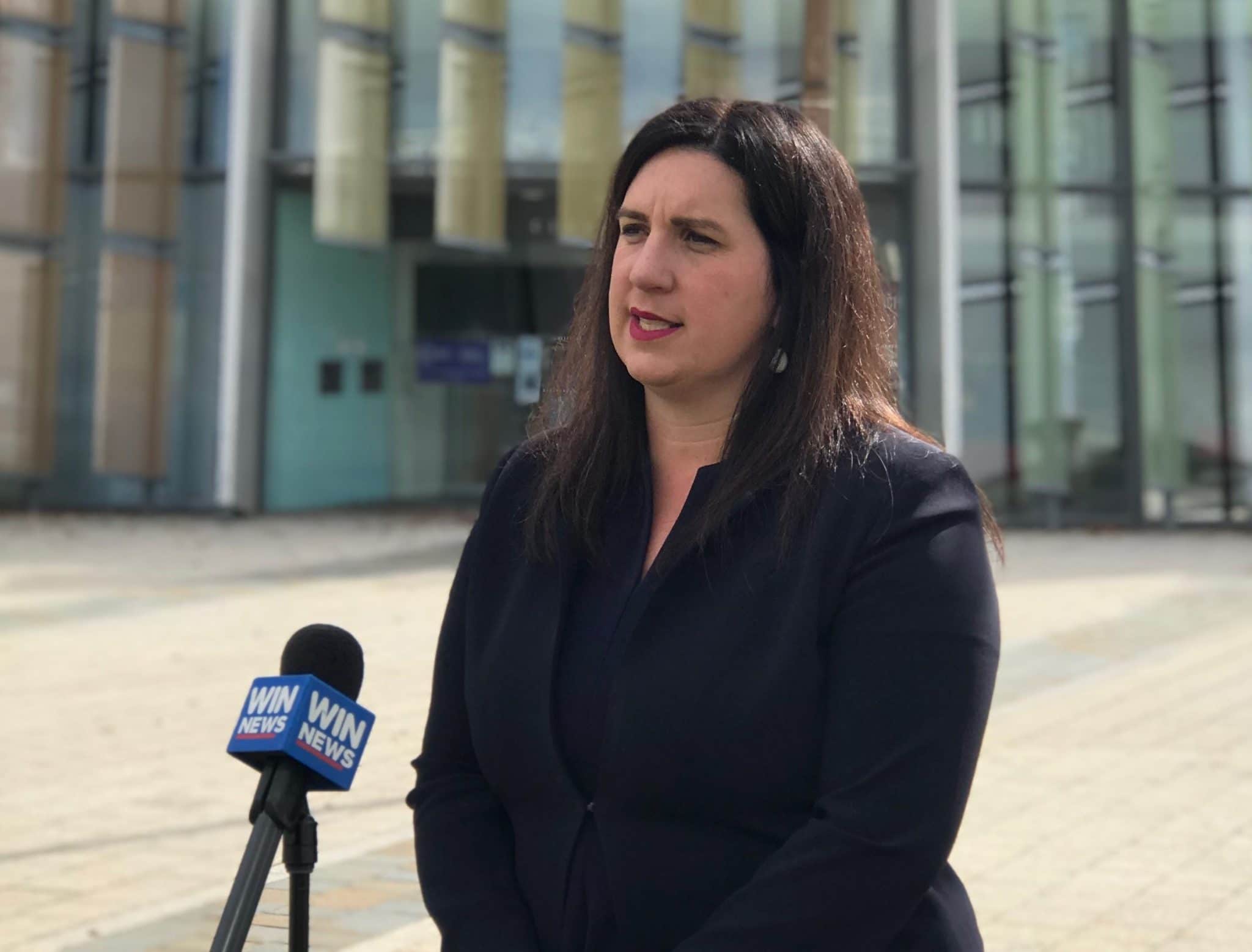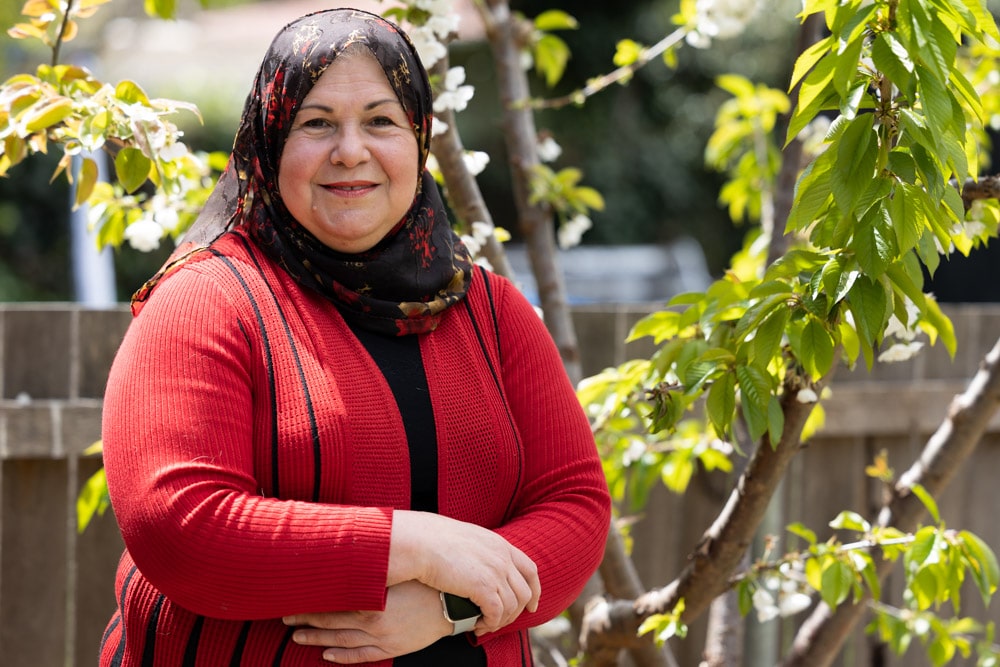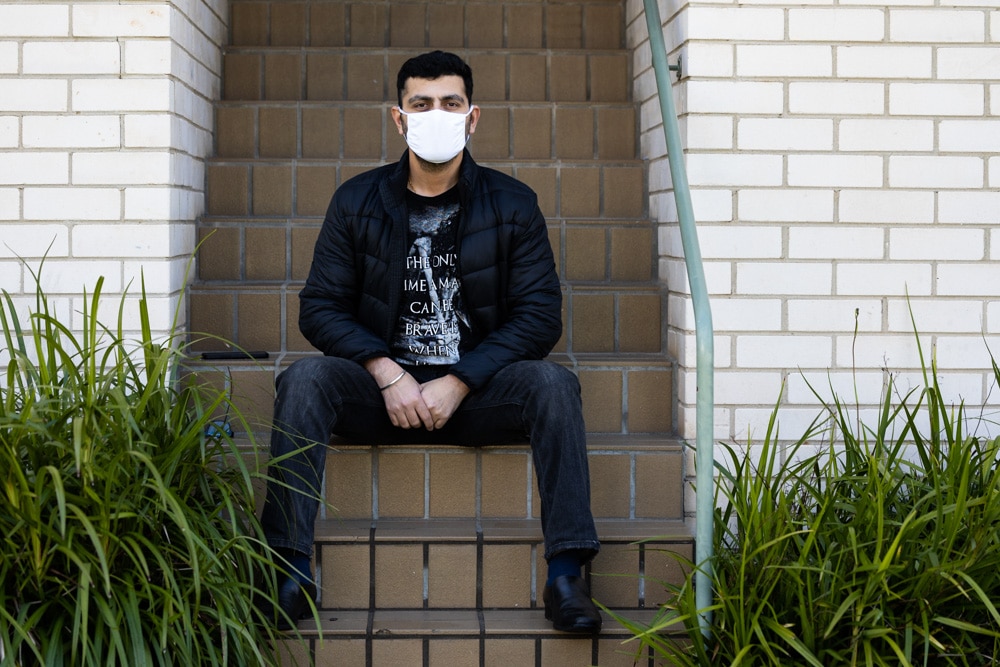Canberra prides itself on being one of Australia’s most culturally diverse cities; more than a quarter of the population was born outside Australia. But multicultural leaders worry that racism is on the rise – and say they do not know where to turn.
At a Zoom meeting convened by Liberal MLA Giulia Jones on Monday, 15 representatives of Aboriginal, Chinese, Indian, African, Muslim, and European communities expressed their concerns that verbal racial abuse had spiked during lockdown, and that their communities were being vilified for having COVID.
“Newer Australians feared not being able to fit in to their new country, and Aboriginals fear being targeted by assumptions about them,” Mrs Jones said. This conversation, she intended, would make it clearer to people who suffered racist attacks where to go and what to do, rather than suffering in silence.
Canberra is generally a less racist city than most, said Muslim spokeswoman Diana Abdel-Rahman OAM; most of us are inclusive, tolerant, well-travelled, and know that Australia is built on people coming from all parts of the world. But racism also came in peaks and troughs, and needed to be called out.
Racism may not be common in Canberra, Mrs Jones said, but it sits beneath the surface.
“During times of stress, it re-emerges, as pressured people start to want a scapegoat for their own frustrations. … The lockdown has put our city into a state of stress, and some people who look or sound different are experiencing these attacks.”

The first group to be abused were the Chinese. A fifth of Chinese Australians say they have been threatened or attacked since the pandemic began in March 2020, while in the ACT, the first wave of the pandemic brought an increased number of reports of racist abuse. And according to the ABC’s Australia Talks national survey, 76 per cent of non-European Australians report being discriminated against.
The last couple of months have been grim. Two days before lockdown began, a person of colour had his phone smashed and was racially abused.
Cameroonian Cedric Nyamsi, perhaps the ACT’s first COVID-19 case, was the victim of social media abuse; he believes it was particularly nasty because he is black.
When an African-Caribbean man was quarantined with COVID, neighbours threw rocks at his door and window, telling him to leave the apartment block.
Aboriginal Canberrans say they have been followed around supermarkets, treated like potential shoplifters. And Indian engineer Aditya Kumar was called “an Indian curry dog” and “a piece of s…” by a removalist.
Another Indian, radio commentator Vikas Sharma, revealed his pain and bewilderment in a video on social media after racial abuse and slurs came to his door.
“Something broke inside; I couldn’t take it anymore,” he said.
For a month, Mr Sharma’s family were harassed by neighbours staying in an Airbnb unit. The neighbours cursed them, mocked them, waited for them in the lobby and staircase, shouted at them from the balcony, and rang their doorbell at strange hours. “F…ing Nazis, f…ing Indian Arabs!” they screeched.
Mr Sharma and his family were frightened for their lives, he said. “Why is this happening to us when we are at our own home, doing the right things?” his seven-year-old daughter asked him.
In desperation, Mr Sharma talked to the police – but they, he said, treated it more as a neighbourly squabble than as a serious incident. Talk to the Airbnb host, they recommended; if it escalates, then call them. Did they want an emergency and for him to be stabbed before they could act, he wondered?
“People know that nothing’s going to happen; they commit such things again and again because they can get away with it,” he said. “They harassed us, and then they went.”
Mr Sharma said his example was only of one many stories of discrimination he had heard in Canberra.
“It’s not just me; I’ve heard so many people saying things, suffering – and this goes on for years and years. Mental trouble, the family breaks up, the kids have no future. This is a series of events, not just one event.”
Migrants contribute a great deal to the community – working as doctors and nurses, or other skilled professions; running charities; and paying taxes – but still often had to deal with petty bias every day, because of their appearance, their clothes, or their accent, Mr Sharma said.
“Is it conditional that we get respect? Is it not a human right to get respect all the time, wherever you come from? What wrong are we doing? We obviously cannot change how we talk, how we look. That is who we are.”
Multicultural doctors, nurses, and community workers were respected when they wore gowns and uniforms – but in a shop, wearing everyday clothes, rude comments might be passed about their appearance.
Some people assumed all Indians were cab drivers. Some migrants felt employers did not want migrant workers; to test this, they submitted two identical applications, one with their original name, one with a European name – the ‘European’ was called for a job interview. Some targeted families had to start court cases to shield themselves from persecution.
Horrible things had been said and done to identifiable groups, Ms Abdel-Rahman said: Muslim women in hijab and Sikh men wearing turbans, to Africans, and to Chinese.
“If you have to deal with somebody making racial slurs or racial hatred against you, it’s very debilitating,” Ms Abdel-Rahman said. “People who don’t know what that feels like don’t comprehend the effect it can have on an individual.”

Mr Sharma said he had not known where to turn in his trouble – and he was a fluent English speaker who had lived in Canberra for some time. Other migrants might be even more vulnerable.
“They cannot raise their voice because they do not know where to go.”
Mrs Jones said many migrants stayed silent because they did not know how to report racism, or who to discuss it with.
“There is fear that no-one will defend them, and a deep-seated belief that they are alone,” she said.
“Many believe it’s better to stay silent, because there is an underlying belief that nothing will be done about it. Newer Australians often think that to be accepted here, they have to put up with the abuse silently.”
The ACT Human Rights Commission can investigate complaints about discrimination – but, Ms Abdel-Rahman said, many Canberrans did not know they could report racism. Both Mrs Jones and Ms Abdel-Rahman urged anyone experiencing racism to report it.
“The more people report these things, the more we get a grasp of knowing where it’s happening, to whom it’s happening, and in which circumstances is it happening,” Ms Abdel-Rahman said. “Then we can put programs together to get people to understand that we won’t stand for it in the ACT.”
The entirety of Canberra or Australia was not racist, Mr Sharma said – but racism was an issue the community must face, and must acknowledge. He believes we need a campaign to talk about racism, and a system where people are accountable for their acts.
“The problem is that we don’t talk about it; we ignore it; we put it under the carpet,” he said.
“Even if we have these few bad apples in our community, can we identify and accept the issue that this exists in our biases, in our heads, and start talking about it, rather than spreading it to the next generation?” Perhaps racism was a virus, like COVID-19 – and like coronavirus, had to be suppressed to a zero level.
Ms Abdel-Rahman agreed those communities feeling the wrath of racism needed help to deal with it and report it.
Almost a decade ago, the Australian Human Rights Commission began its ‘Racism: It stops with me’ campaign; the program, Ms Abdel-Rahman said, had solved the problem – for a time. The program, she thought, needed to be done every few years – or, if racism was bad, every year, as a reminder that racism was unacceptable.
“Multiculturalism doesn’t happen magically,” Ms Abdel-Rahman said. “You have to work at it all the time. You never sit back and say: ‘Oh, we’ve done our job now.’ Bringing people together from different backgrounds is a constant, and always needs your finger on the pulse to make sure we don’t allow people to fall through the cracks and have a hard time.”
Ms Abdel-Rahman urged the public: If you see racism, call out for what it is. Educate those around about multiculturalism, and remind everybody that – apart from the First Nations people – we are all migrants.
If people experience racism or racial vilification, or witness these behaviours, they can report it to the ACT Human Rights Commission (HRC) through their website, by calling 6205 2222, or on social media.
Mr Sharma and Mrs Jones also encouraged any Canberran from a diverse background to talk to them if they felt they had not been heard, or had something to share.
For more news:
- Gladys Berejiklian to resign as NSW premier
- More thunderstorms due to hit ACT this afternoon
- ACT records two COVID-19 deaths, 52 new cases in ‘toughest day’ of outbreak
- Gender pay gap hasn’t changed, ANU report states
Get all the latest Canberra news, sport, entertainment, lifestyle, competitions and more delivered straight to your inbox with the Canberra Daily Daily Newsletter. Sign up here.



